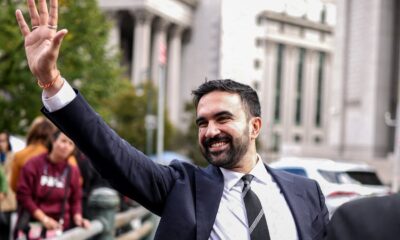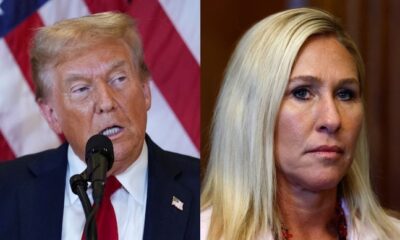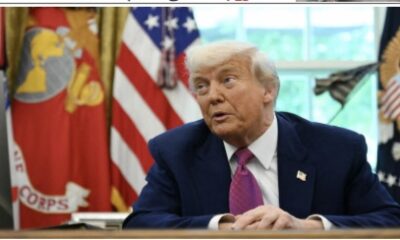News
Trump-Ramaphosa Clash Reflects Global Racial Politics and Strategic Misalignment
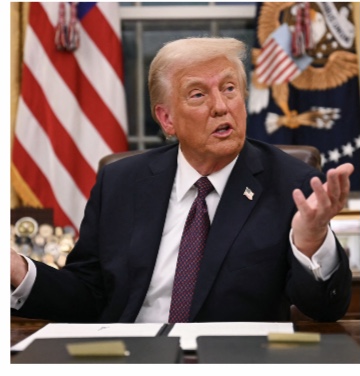
Trump-Ramaphosa Clash Reflects Global Racial Politics and Strategic Misalignment
1. Ideological Signaling and Domestic Politics
Trump’s decision to admit 59 White South Africans as refugees—couched in language invoking “White genocide”—can be seen as ideological signaling to his political base. The “White genocide” narrative is a well-documented conspiracy theory that circulates in far-right circles. By echoing this rhetoric in a high-profile diplomatic setting, Trump appears to be leveraging foreign policy for domestic political gain, particularly among voters who feel threatened by changing racial demographics or are sympathetic to narratives of White victimization.
This move also aligns with a broader populist strategy: presenting himself as a protector of embattled groups (in this case, White South Africans), while casting liberal governments, both foreign and domestic, as complicit or negligent in addressing violence or perceived injustice.
2. Racial Framing and the Misuse of Crime Statistics
Trump’s framing of South African violence as racially motivated overlooks the socio-economic context in which crime occurs. South Africa, a country still grappling with the legacies of apartheid, has widespread violence rooted in inequality, poverty, and a strained justice system. Ramaphosa’s response—that the majority of crime victims are Black South Africans—highlights this reality.
Trump’s narrative selectively isolates cases involving White victims and amplifies them to construct a racialized crisis. This manipulation of data not only distorts the complexity of crime in South Africa but also perpetuates harmful stereotypes that undermine reconciliation efforts in post-apartheid society.
3. Diplomatic Fallout and International Relations
The public nature of Trump’s accusations—complete with videos and media clippings—breaks from typical diplomatic protocol, where sensitive matters are discussed discreetly to preserve bilateral respect. By presenting these materials in the Oval Office and effectively confronting Ramaphosa in front of the press, Trump shifted the tone from dialogue to accusation.
This could have longer-term consequences for U.S.–South Africa relations. South Africa has sought to position itself as a global mediator and regional leader; Trump’s statements risk delegitimizing its government’s authority and international standing by implying complicity in racially targeted violence.
4. Humanitarian Implications
This episode raises important questions about how the United States defines and administers refugee status. Refugee protections are intended for individuals facing persecution on the basis of race, religion, nationality, membership in a particular social group, or political opinion. If Trump’s administration interpreted White South Africans as meeting this standard based on contested or ideologically loaded claims, it may signal a politicization of refugee criteria.
This sets a concerning precedent: if refugee admissions are guided not by humanitarian need but by ideological alignment or political utility, the integrity of asylum as a protection mechanism could be compromised.
5. Broader Context: Race, Power, and Narrative Control
At its core, the incident reflects a power struggle over narrative. Trump attempts to control the global conversation on race by re-centering White grievance, a theme that has resonance in parts of the Western world undergoing demographic and cultural shifts. Ramaphosa, in contrast, asserts a narrative grounded in post-colonial sovereignty and national complexity.
The friction arises from two incompatible visions of reality: one that seeks to universalize a sense of White vulnerability, and another that emphasizes shared national challenges over racialized victimhood. This encounter becomes a proxy battlefield for larger questions of who gets to define racism, victimhood, and justice in the 21st century.
News
Court, Congress Pile Pressure on DHS Over Minnesota Operations

Court, Congress Pile Pressure on DHS Over Minnesota Operations
US House Democrats have threatened to begin impeachment proceedings against Homeland Security Secretary Kristi Noem over her handling of the immigration crackdown in Minnesota, unless President Donald Trump removes her from office.
House Minority Leader Hakeem Jeffries warned that Democrats could proceed “the easy way or the hard way,” describing the actions of Noem’s department as “disgusting.”
The crisis follows the fatal shooting of US citizen Alex Pretti by a federal agent, which has triggered backlash in Minneapolis and led to the planned departure of Border Patrol Chief Gregory Borvino and some agents from the city.
Trump has deployed his “border tsar,” Tom Homan, to take charge of on-the-ground operations, while a Minnesota judge has ordered acting ICE director Todd Lyons to appear in court over alleged violations of court orders.
Trump has distanced himself from claims by senior adviser Stephen Miller that Pretti was a “would-be assassin,” saying he did not believe the victim was acting as one.
Video footage shows Pretti holding a phone while filming agents, not a gun, although police say he was a legal firearm owner.
News
UN Raises Alarm Over ‘Spare No-One’ Rhetoric by South Sudan Army Chief

UN Raises Alarm Over ‘Spare No-One’ Rhetoric by South Sudan Army Chief
The United Nations has expressed concern after South Sudan’s Deputy Army Chief, Gen. Johnson Oluny, was heard urging troops to “spare no-one,” including children and the elderly, ahead of military operations in opposition-held areas of Jonglei State.
In a video posted on Facebook, Oluny, addressing members of his Agwelek militia, called for total destruction during the deployment.
The UN Mission in South Sudan condemned the remarks, describing them as “utterly abhorrent,” and warned that inflammatory rhetoric targeting civilians must stop immediately.
South Sudan’s government, however, said the statement did not amount to an official order, insisting it remains committed to protecting civilians.
Minister of Information Ateny Wek Ateny said civilians were being warned only to avoid being caught in crossfire.
The development comes amid escalating fighting in Jonglei, where forces loyal to suspended Vice-President Riek Machar have seized several areas.
The military has ordered civilians, UN personnel and aid workers to evacuate three counties—Nyirol, Uror and Akobo—ahead of an imminent operation.
The UN says more than 180,000 people have been displaced by the renewed violence.
Meanwhile, tensions remain high as opposition forces threaten to advance towards the capital, Juba, a claim dismissed by the army.
South Sudan has been unstable since a 2018 peace deal ended a five-year civil war that killed nearly 400,000 people, but lingering political rivalry and ethnic tensions continue to threaten fragile peace.
Diplomacy
Rwanda sues UK over scrapped migrant deal payments
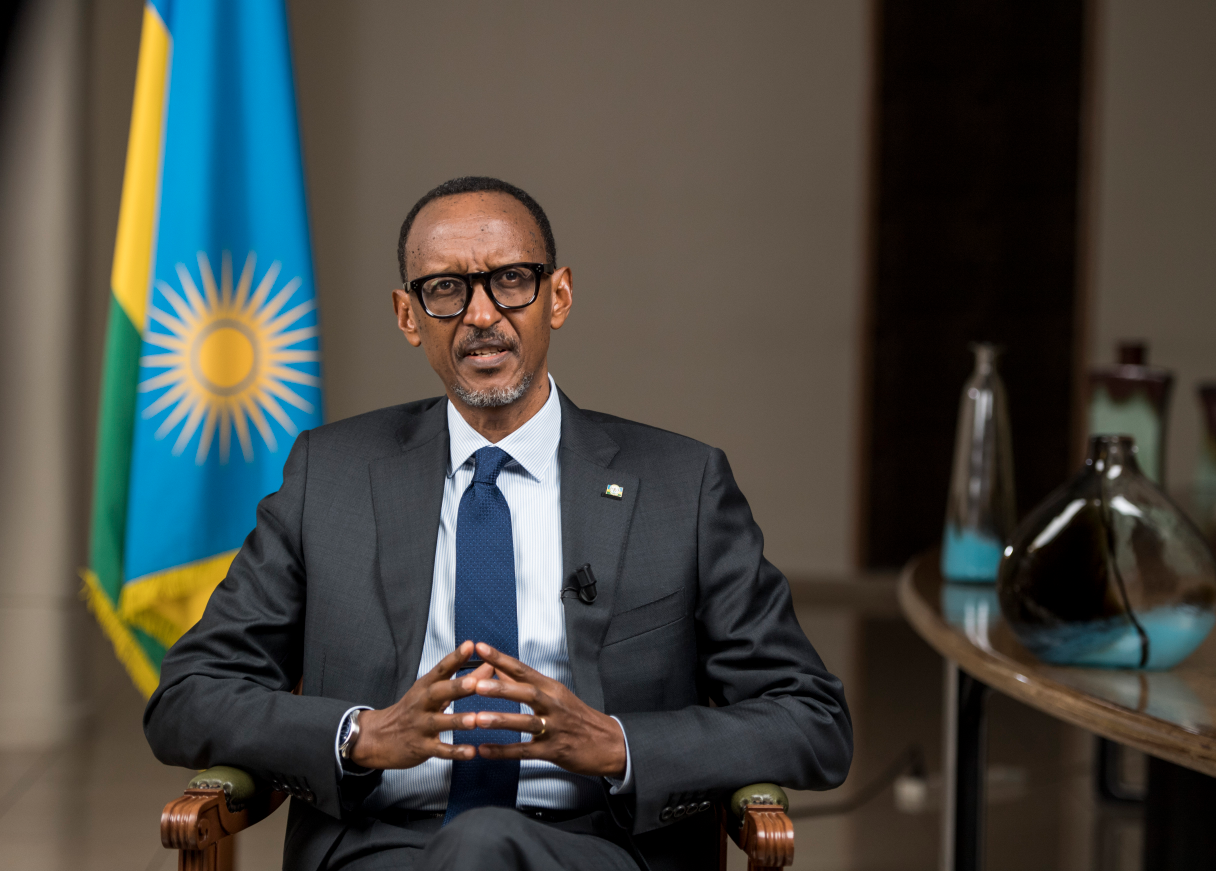
Rwanda sues UK over scrapped migrant deal payments
The Rwandan government has initiated arbitration proceedings against the United Kingdom, seeking payments it says are owed under the now-abandoned asylum partnership agreement between both countries.
Rwanda has filed the case at the Permanent Court of Arbitration (PCA) in The Hague, arguing that the UK failed to honour financial commitments contained in the deal signed under the former Conservative government.
The agreement, designed to relocate some asylum seekers from the UK to Rwanda, was scrapped in 2024 by Prime Minister Sir Keir Starmer, with the Home Office saying about £220m in future payments would no longer be made.
UK authorities insist the policy was costly and ineffective, pledging to defend the case to protect taxpayers’ funds.
Rwanda, however, says the arbitration concerns unmet treaty obligations and is seeking a legal determination of both parties’ rights under international law.
The PCA lists the case as pending, with no timetable yet announced for hearings or a ruling.
-

 Analysis23 hours ago
Analysis23 hours agoThe Agony of a Columnist, by Alabidun Shuaib AbdulRahman
-

 News17 hours ago
News17 hours agoMacron invites Chad’s Déby to Paris amid push to reset ties
-

 News17 hours ago
News17 hours agoTinubu Unhurt After Brief Stumble at Turkey Reception
-
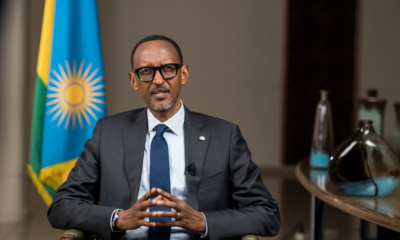
 Diplomacy17 hours ago
Diplomacy17 hours agoRwanda sues UK over scrapped migrant deal payments
-

 News16 hours ago
News16 hours agoCourt, Congress Pile Pressure on DHS Over Minnesota Operations
-

 News17 hours ago
News17 hours agoUN Raises Alarm Over ‘Spare No-One’ Rhetoric by South Sudan Army Chief




